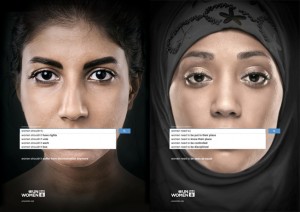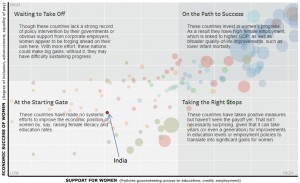In my previous posts here and here I have lamented how mainstream advertising agencies most often perpetuate the stereotypes when portraying women so lo and behold when I see a mainstream advertising firm taking up the issue of stereotyping I was excited to see it but unfortunately that was short-lived. This recent campaign by UN Women using Google’s instant search tool box to “reveals widespread sexism” has stirred many an emotion. They range from disbelief to evidence of what they knew already.
But is Google telling the truth? Google Instant is an “autocomplete” feature – which, according to their site is:” a search enhancement that shows results as you type.”
It is based on the company’s careful mining of hundreds of billions of searches performed each month. For anyone who wants to know how Google describe how it works here’s the official blog explaining during its launch. It is important to understand how this works before we use its results and say its telling the truth. Perhaps its seemless-ness in our daily search imparts the impression that its the truth. Google seems to know most often what I am looking for when I start typing in the search box, hence my conclusion is that it knows what I want – and when what it throws up as result is exactly what I wanted – I begin to feel that it is telling me “the truth”. I am exaggerating the chain of thought but in a sense the UN Women campaign is basing it on this principle – What google search is showing is the “truth”.
The campaign though powerful misses the important consideration which is that Google instant is based on an algorithm that uses important factors such as your location, your search history, your language, your timing, your browsing history, the “freshness” of any topic in determining what text to complete your sentence with. Here’s a dated but useful article to show how it works in detail. All these factors including Google’s policy on what it censors influences what shows up.
From a campaign point of view its capitalizing on 1 factor: shock factor, not just the shock of how deeply rooted sexism is but the shock of seamless integration of Google instant search box in our lives. Which is a good campaign but it is also using incorrectly the public perception that there is a direct linearity of relationship between what Google autocomplete throws up with what we all really think (ie is the truth). The bigger problem for me is not what this campaign is subtly but definitely using but rather the ability of a company to use its algorithmic prowess to feed us what we should be believing as the truth. The great danger this poses is that we are stuck in a loop of information that reinforces incorrect information for all future searches. One way, at least for me, was to turn autocomplete off just by changing one setting. I recommend trying it then perhaps we will really search for what we wanted rather than be sucked into believing what is being fed to us is what we were looking for.
Let this post not confuse you that I am saying sexism does not exist, let it not be misread for one minute that we are not surrounded by injustice towards women. That is the truth. But this post is not about that and if you did not understand that well then this post was lost on you.

